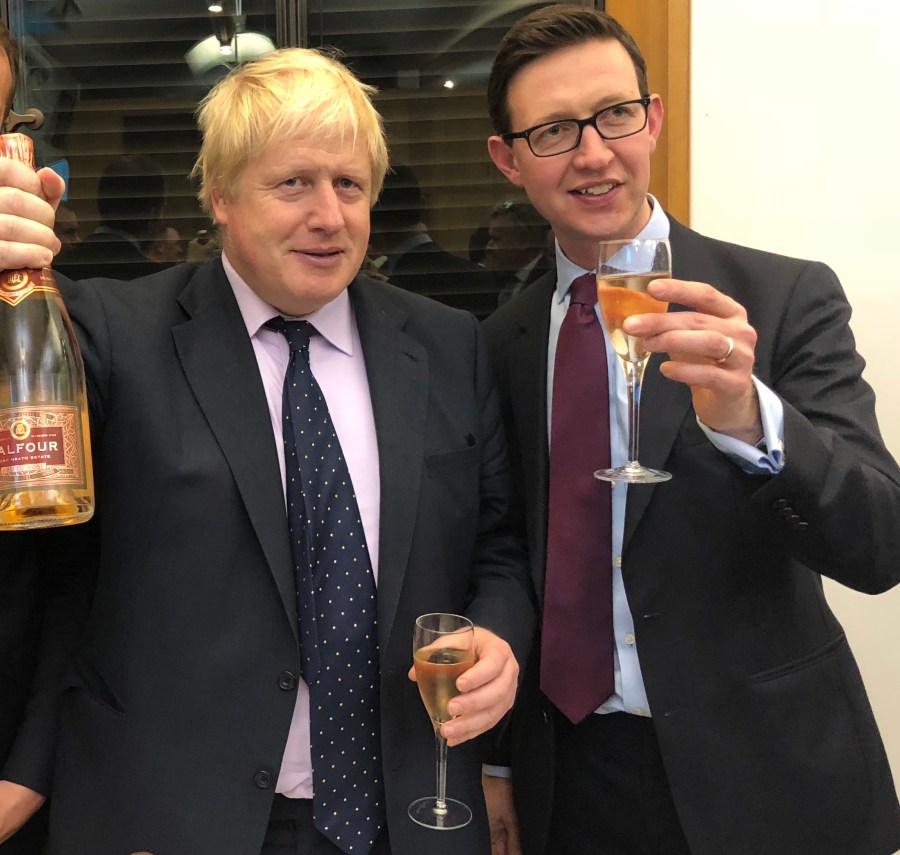Miles Beale is the chief executive of the drinks industry’s chief lobbying organisation, The Wine & Spirit Trade Association. Miles Beale and the WSTA have the ear of the Government… He talks to Vineyard
So how did you get to be the WSTA’s CEO?
“Being private secretary to two cabinet ministers accompanying one to Tehran, on a first visit by a senior minister since the 1979 Islamic revolution, and tackling strike action by an emergency service with another.”
How did you get to be in the wine and spirits sector?
“The seed was planted during my third year of university in Bordeaux and flourished when I had to leave the civil service to satisfy a thirst for austerity.
Years in the sector?
“Almost 10.”
What do you regard as your particular expertise?
“Government; team building and stubbornness.”
What do you love about the wine and spirits sector?
“The variety, the people, learning and merriment. It’s never dull and frequently satisfying. I feel the WSTA does a good job for its members and the industry in general – and that it’s in high demand right now.”
What frustrates you about the wine and spirits sector?
“The reluctance to get involved in standing up for our sector – not so much publicly, which can be tricky, but with government and politicians. Too often businesses are reluctant to stand up for themselves with government. As a sector we are also bad about cultivating contact with politicians that we might need to stand up for us some day. Given how hospitable everyone is – by requirement – it seems odd that (future) allies are so often left out. How can they support or defend us if they don’t understand the nature of what we do?
“I would also like to see more examples of the sector working together to tackle future challenges, especially when they are industry-wide. For example, no businesses or sector will get to Net Zero (carbon emissions) on their own, but businesses too often work alone or hope they don’t have to worry about it yet. Another example is consumer information – whether consumers, government or the anti-alcohol lobby are asking for more, the answer should no longer be about what’s on a label – but instead about what’s online. You need a QR code or similar on the label, but everything anyone could want can now be provided online.”
If there is one thing you would like to do to improve things, what would that be?
“Can I have two?
“1) To gain clarity from government on some basic post-Brexit rules for trading in our products.
“And 2) To have the Chancellor think again about his proposals for changing the way he wants to tax alcohol. He is making some horrible unforced errors, especially for wine. By all means move to an equivalence model, but a) tax all alcohol at the same rate, no matter what product it is in; b) recognise that wine is different. Unlike producers of any other alcoholic drink, wine-makers can’t control ABV so don’t introduce something that discriminates against hot climates and that will kills SMEs with red tape; and c) give small producer relief to producers of all drinks, not just beer and cider.”
What is your opinion of English and Welsh wines?
“It depends which ones! But I love four things about English and Welsh wines:
1. They are at the edge of new cool climate wine making – with Champagne varietals and style (fizzy) dominant, but some variation; emerging still wines and some modernisation creeping through.
2. The well-made wines taste great and uniquely British and will mostly only get better as acreage and yields increase, wine makers build stocks/cellars, experiment (e.g. vintages v NV), build tourism and attract more talent to our shores.
3. They are highly exportable – and building future markets is key and something WSTA wants to be able to get on with.
4. Finally, they are a great way to introduce non-wine experts to wine. Telling the evolving story of English and Welsh wine is a way to get politicians interested. Where we see more and more lip-smacking wines they see modern farming and exciting new local, rural economic growth. It’s wine/win!”
First introduction to English/Welsh Wines?
“I think Chapel Down might have been my first UK vineyard visit, but the fact I am unsure is a good thing!”
How could they improve?
“Better data, a vision for the whole industry, planning for export – as a category. Think Champagne, think global, think ahead.”
What is your favourite tipple?
Too many options! I love a sparkling wine, a Bordeaux-style red and a G&T. Never at the same time…”
What makes you ‘tick’?
“Challenge, interest, stimulation, learning. And fun.”
What do you do in your spare time?
“I love a lot of sport – increasingly from an armchair with glass in hand! Travel (when allowed), food and books.”
This story was taken from the latest issue of Vineyard. For more up-to-date and in-depth reports for winemakers and growers in Great Britain, read our latest issue here and subscribe here.




